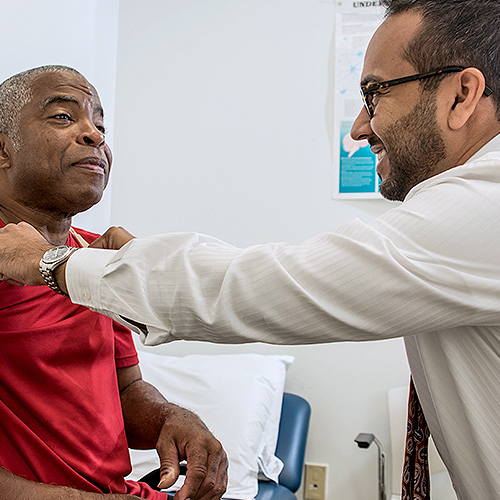Medical Coordination
Clinician Collaboration Helps the Whole Person Heal
Physical and neurological complications are the frequent result of brain injury. In the quest for healing the whole person, CNS arranges consultation, evaluation, and medical oversite with a broad spectrum of clinical specialists, based on a patient’s needs and therapy goals. These physicians are experienced professionals who help patients maximize rehabilitation by addressing problem areas associated with their injury. During and after a pre-admission evaluation, CNS can identify which specialists may need to be utilized.
 Clinical collaboration can address:
Clinical collaboration can address:
- Orthopedic and neurosurgical complications
- Care needed for patients with cardiac disease, diabetes, hypertension, and other medical issues
- Optical damage that requires a visual treatment protocol, specialized lenses for glasses, and eye exercises to ensure safety and improve vision
- Neuroendocrine imbalances, hormone deficiencies, and sleep disturbances
- Neurobehavior issues such as depression, anger issues, and emotional trauma
- Chemical dependency
The patient’s therapy team, led by a case manager, assesses physical, cognitive, and psychosocial deficits, and identify specialists within CNS or in the area of the clinic and set an appointment. Insurers, attorneys, and family members are informed of these recommendations and may be present at medical visits. Therapists may accompany patients to appointments, discuss with the specialist suggested treatment and actions for in-clinic practice, then ensure those instructions are carried out in rehabilitation. Staff can also refer the patient to physicians in the patient’s community to continue specialized care post discharge.
Medical cooperation is a hallmark of CNS’ comprehensive approach. Never a one size fits all philosophy, our clinical collaboration is an in-depth component of care that ensures that all aspects of brain injury are taken into account and treated.

